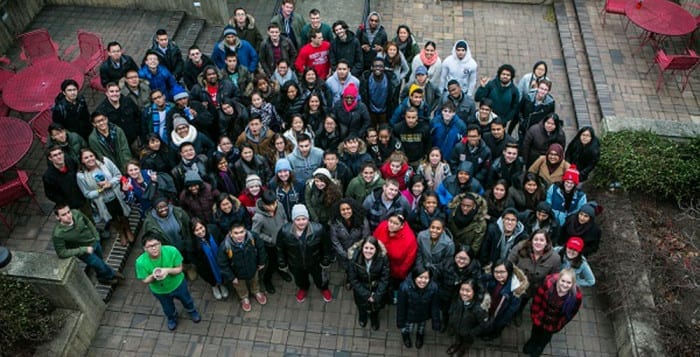Pi Day will be extra sweet this year.
Hometown Bake Shop at 2 Little Neck Road in Centerport plans to open its doors on Monday, March 14, also known to math enthusiasts as Pi Day because the numerical date matches the first three digits of pi.
Northport resident Danna Abrams, 38, and Huntington’s Luigi Aloe, 42, are putting their collective business and culinary experience to use in the new shop endeavor. If they execute their vision successfully, “hometown” will not only be the name of their bakeshop, but the feel as well.
The menu will feature items made from scratch, both sweet and savory, with organic and gluten-free options and local influences.
“I’m a mom with three kids, and we all don’t have time to make everything anymore,” Abrams said in an interview at the under-construction shop on Tuesday. “We all wish we could do the slow-cooked brisket, the 20-hour pulled pork. We want that, and love that, with no preservatives and made from scratch and from someone who wants to make it and loves to make it. So that’s what [Hometown Bake Shop] is.”
The duo has been on a shared path for years, starting with graduating from Huntington High School.
Aloe also owns Black & Blue Seafood Chophouse in Huntington. He hired high school friend Abrams to be that restaurant’s pastry chef several years ago, and after some experience selling their products at farmer’s markets, the duo decided opening the new business was the next logical step.

Abrams’ three daughters are her inspiration, she said. Charlie, 9, loves her mom’s chicken potpie — which is Aloe’s favorite as well. Abrams’ recipe for her fudgy, chocolate brownies was perfected while she was pregnant with 5-year-old Ilan, and 3-year-old Riley loves anything with fruit in it.
“I’ve always been a foodie,” Abrams said. She holds a master’s degree in sculpture from Boston University but has worked in restaurants all of her life, including the Cold Spring Harbor Beach Club and T.K.’s Galley in Huntington. Her Italian and Jewish roots influence her cooking and passion. She said everyone jokes she must secretly be from the South, because her fried chicken and biscuits are so authentic, they couldn’t possibly come from anywhere else.
Even though Abrams said cooking comes second nature to her, this is her first time venturing into the world of entrepreneurism. That’s where Aloe comes in — he’s spent time in the food industry, owning restaurants since he was 23. Together the two have all the ingredients for success.
“Danna is very talented and she’s like the heart and soul,” Aloe said. “I think what our whole thing is here is to try to be a family-oriented place.”
Abrams has plans to dedicate a refrigerated display to local produce and dairy products, as a way of supporting local business owners’ dreams in the same way she says Aloe did for her.
“The community here is very good to the stores,” Aloe said. “They’re not into conglomerates. … Everybody’s rooting for us — that’s what we feel like in the community.”
Hometown Bake Shop’s manager, Nicole Beck Sandvik, reiterated both owners’ vision for the business.
“We want people to walk in this place and have it be like their second home,” Beck Sandvik said. “When they don’t have time to cook breakfast or make dinner, they know they can come here and get a home-cooked meal.”
Hometown Bake Shop will be open from 6 a.m. to 7 p.m.






















